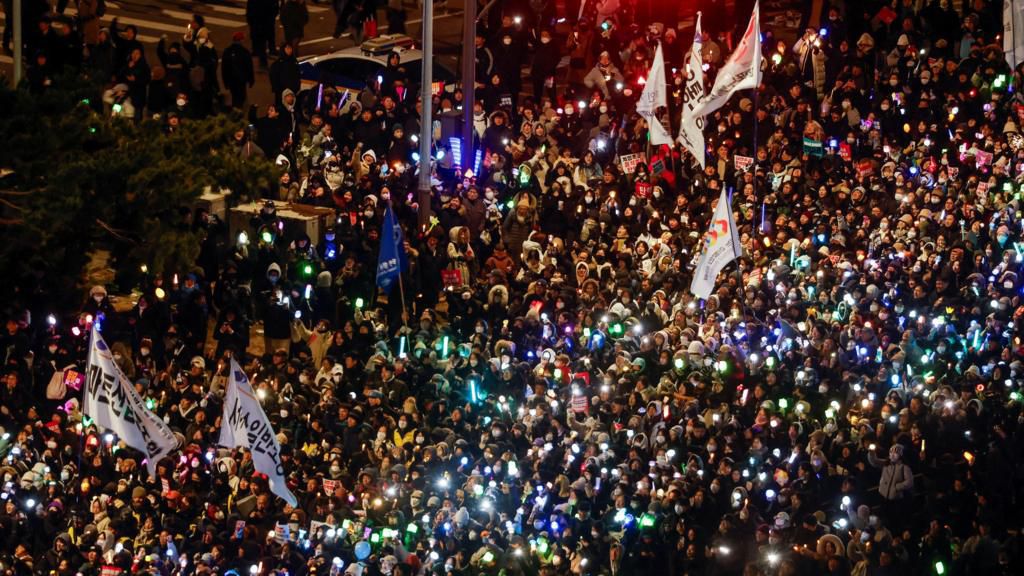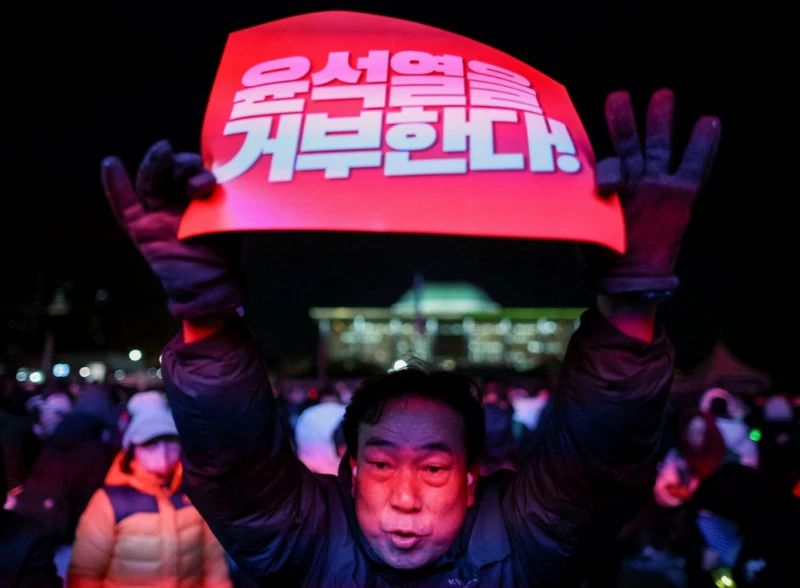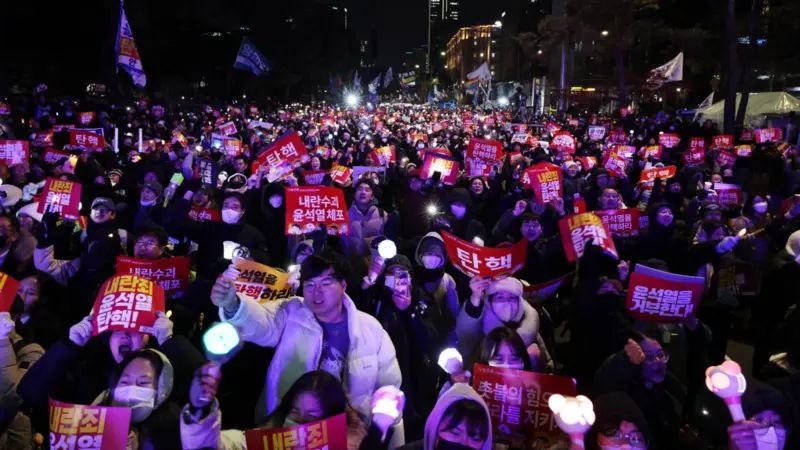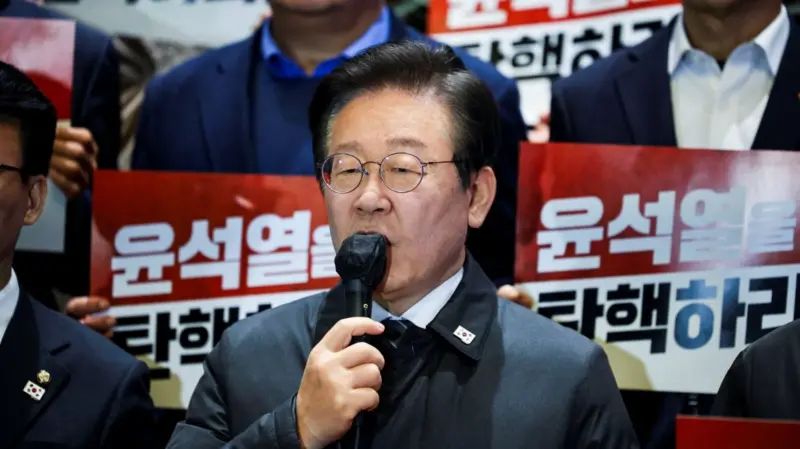By Nakiwala Barbra
A vote to impeach South Korea’s embattled President Yoon Suk Yeol failed on Saturday after lawmakers from the ruling People Power Party (PPP) boycotted the session.
All but three ruling party MPs walked out of parliament before the vote, leaving the opposition unable to secure the required 200 votes needed for the bill to pass.

The impeachment motion, brought forward by the opposition Democratic Party, was spurred by growing public anger over Yoon’s controversial decision to declare martial law earlier in the week. The president’s declaration, which was swiftly overturned by lawmakers, sparked widespread outrage, with many accusing him of overstepping his authority.

Tens of thousands of protesters gathered outside the National Assembly in Seoul, demanding his resignation.
Yoon issued a public apology on Saturday, acknowledging the backlash against his martial law declaration. He vowed not to impose such measures again, stating, “I deeply regret the decision and take full responsibility for the unrest it caused.” Despite his apology, public confidence in his leadership continues to wane amid growing dissatisfaction with his handling of domestic and political crises.

The failed impeachment vote highlights deep divisions within South Korea’s political landscape. While the opposition sought to hold Yoon accountable, they fell short of convincing at least eight ruling party lawmakers to cross the aisle. Critics argue that the ruling party’s decision to boycott the vote reflects their unwillingness to address the president’s controversial actions.

Protests outside the National Assembly have continued, with demonstrators calling for stronger accountability measures and urging the government to prioritize democratic principles. The opposition has vowed to pursue alternative ways to challenge Yoon’s presidency, as political tensions in the country remain at a boiling point.








